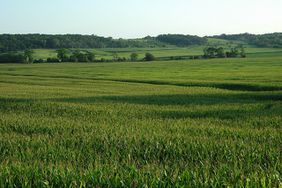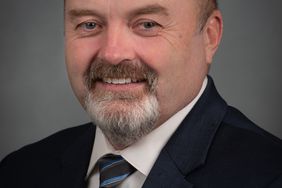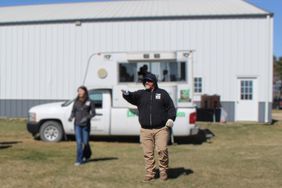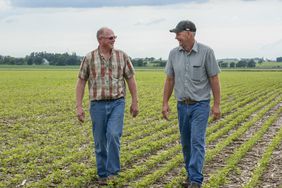:max_bytes(150000):strip_icc()/MG_0648-bfa567b6cdc648479e9c7fdbec513b9f.jpg)
Commodity Classic 2017 brought together more than 9,000 folks in agriculture. They were covering new products, attending association meetings, and visiting the 400 or so booths from manufacturers across the industry.
It also included learning sessions and a Main Stage sponsored by Successful Farming® with editors and industry experts sharing their insights.
On Saturday, two congressional watchers from farm organizations shared their perspectives on the news and events in Washington, D.C., and the new Trump administration. Moderated by Sara Wyant, president of Agri-Pulse, what follows is a roundup of thoughts from Mary Kay Thatcher, senior director of Congressional relations with the American Farm Bureau Federation, and Zach Clark, a government relations representative with the National Farmers Union.
Trade
A timely topic for members of both associations, Thatcher said trade was at the top of the list of concerns by Farm Bureau members. Dropping U.S. participation in the Trans-Pacific Partnership and the impending exit from NAFTA are bad signals, she said. "We are very disappointed" in NAFTA, she said, because members do not want a trade war.
Discussion centered around the structure of trade agreements. If the Trump administration is tearing up these multilateral agreements (like TPP or NAFTA) in favor of bilateral agreements, "then let's get going," she said. Bilateral agreements also take a very long time to execute, she said.
Will the agreements be just a "rebranded" multilateral agreement? asked Wyant. "I don't think we know the right answer yet," Thatcher said. Her organization will look for an indication on NAFTA in the coming weeks.
There is no doubt about the impact of NAFTA on U.S. farmers. NAFTA has been good for farmers, Thatcher emphasized. "Since NAFTA kicked in, we have quadrupled our exports to Mexico." In any new agreement, "while there might be some beneficiaries, there might be losers, too."
Ag Mergers
The NFU opposes the current trio of mergers of large companies in agriculture, according to Clark. "It drives up prices," he said. "It's been in our DNA since our founding." The NFU has done white papers critical of the merger of both Syngenta-ChemChina and the Dow-DuPont merger. They are working on another white paper against Bayer's acquisition of Monsanto.
"We need more competition in the marketplace – not less," he added. He countered the companies' claims that the Bayer-Monsanto deal will add jobs. "You merge to gain efficiencies," not add employees he said. The companies have said the "synergies" defined by merging the two companies will save $1.5 billion annually in duplicated resources, such as regulatory, IT, and financial staff.
Thatcher said that few people are talking about the impact of farmer data. "For me, that's a concern" in these mergers, she said.
Ag Secretary
Both groups are eager to get USDA nominee Sonny Perdue through the rigors of review on to approval and his completion of hiring a staff. He is a "consensus candidate," according to Clark.
Thatcher said members are pleased that Iowa Governor Terry Branstad has been tabbed to be the ambassador to China. His farm-state background should be a help to American farmers. She noted that delays in approval of all of the Cabinet posts are, in part, due to thorough background checks.
She said the FBI will make 45 phone calls of background checks on Branstad, who is the longest-serving governor in the country's history.












